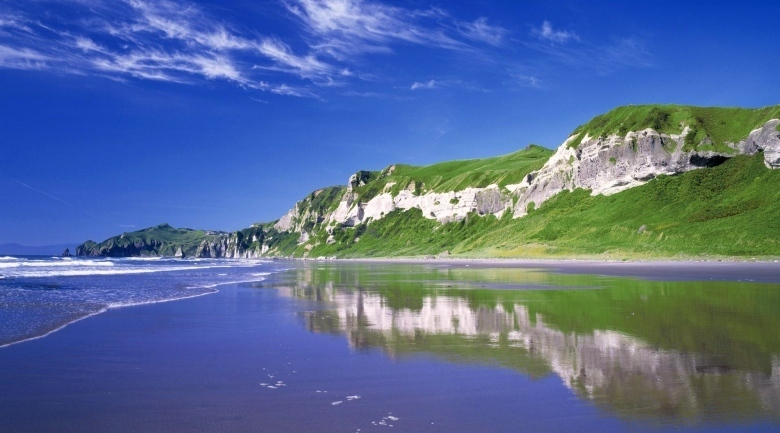
In a field-hut Dr Arjen de Vos shows off his irrigation machine. Pipes lead out to several acres of muddy field, where only a few stragglers from the autumn harvest are left. The tubes are lined with copper to stop corrosion because, in a move that defies everything we think we know about farming, de Vos is watering the plants with sea water.
Last week the project beat 560 competitors from 90 countries to win the prestigious USAid grand challenge award for its salt-tolerant potato. “It’s a game changer,” said de Vos. “We don’t see salination as a problem, we see it as an opportunity.” Here, on one of the Netherlands’ northernmost islands, windswept Texel (pronounced Tessel) surrounded by encroaching ocean and salt marshes that seep sea water under its dykes and into ditches and canals, an enterprising farmer has taken the radical step of embracing salt water instead of fighting to keep it out. And now he thinks he might just help feed the world.
Inspired by sea cabbage, 59-year-old Marc van Rijsselberghe set up Salt Farm Texel and teamed up with the Free University in Amsterdam, which sent him de Vos to look at the possibility of growing food using non-fresh water. Their non-GM, non-laboratory-based experiments had help from an elderly Dutch farmer who has a geekish knowledge of thousands of different potato varieties.
“The world’s water is 89% salinated, 50% of agricultural land is threatened by salt water, and there are millions of people living in salt-contaminated areas. So it’s not hard to see we have a slight problem,” said van Rijsselberghe. “Up until now everyone has been concentrating on how to turn the salt water into fresh water; we are looking at what nature has already provided us with.”
